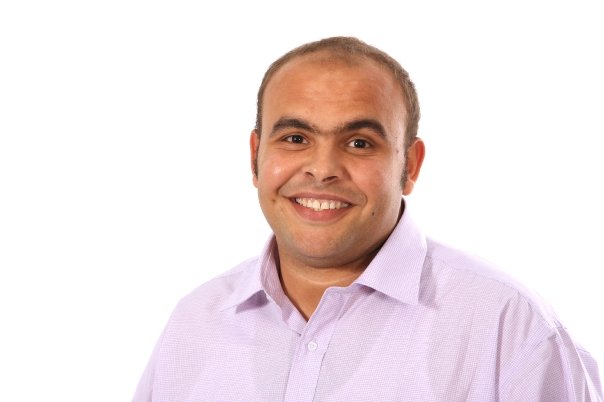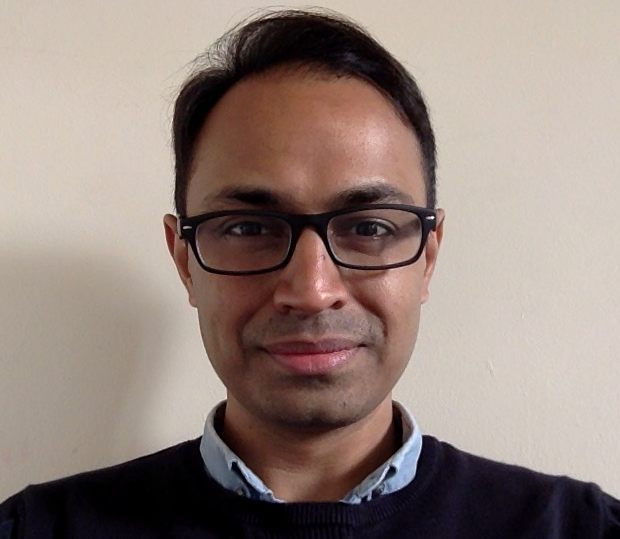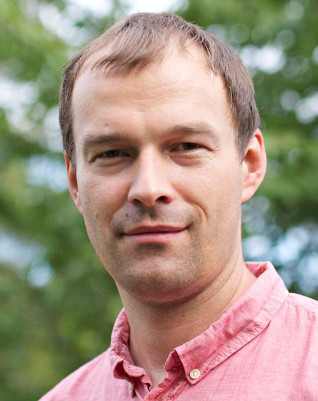IfI Summer School 2016
The 2016 IfI Summer School is a week-long event for graduate students and reasearch assistants in informatics and related fields, where invited experts teach a number of different topics in day-long courses on a variety of topics in Computer Science.
Dates and Location
The summer school will take place June 20-24, 2016 at the University of Zurich BIN (Department of Informatics, Binzmühlestrasse 14, 8050 Zürich). The courses will be held in room 2.A.01 resp. 2.A.10 from 9:00 - 17:00 (check-in starts at 8:45am) with coffee and lunch breaks.
Overview of the week
| Day | Course | Instructor | ECTS credits |
|---|---|---|---|
| Mon, June 20 |
Bridging the Convenience and Effectiveness of Mobile Devices | Prof. Dr. Donsong Zhang | 0.5 Doctoral |
| Mon, June 20 |
Auctions and Matching Markets | Prof. Dr. Itai Ashlagi | 0.5 Doctoral |
| Tue, June 21 |
Big Data 2.0 Processing Systems | Prof. Dr. Sherif Sakr | 0.5 Doctoral |
| Tue, June 21 |
Social Media Applications and Analytics | Prof. Dr. Lina Zhou | 0.5 Doctoral |
| Wed, June 22 |
Research Methods and Writing Research Papers | Prof. Dr. Roel Wieringa | 0.5 Methodology |
| Thu, June 23 |
Graph Cuts and Linear Programming for Energy Minimization | Prof. Dr. Pawan Kumar | 0.5 Methodology |
| Fri, June 24 |
Deep Learning | Dr. Jan Koutnik | 0.5 Methodology |
Daily schedule (subject to change as needed by instructors)
| 08:45 - 09:00 | Check-in |
| 09:00 - 10:15 | Instruction |
| 10:15 - 10:45 | Coffee break |
| 10:45 - 12:00 | Instruction |
| 12:00 - 13:00 | Lunch (@mensa, not included in cost) |
| 13:00 - 15:00 | Instruction |
| 15:00 - 15:30 | Coffee break |
| 15:30 - 17:00 | Instruction |
All registered students are also invited to attend the summer school social event, which will take place on Wednesday, June 22 directly following the course. Details to follow.
Registration
The Summer School is open to doctoral students in computer science and related fields from the University of Zurich as well as other universities. Registration is free for IfI research assistants and ifi doctoral students. For all other students, fees are 90 CHF for the entire five-day summer school, or 20 CHF for individual courses. Attendance will be capped at 40 people per course.
Preference will be given to IfI doctoral students and research assistants and other participants will be admitted on a first-come-first-served basis.
Registration is now closed. For further information please contact Barbara Jost.
Payment Method
The fee will be paid on site in cash only at the check-in desk outside the classrooms every day between 8:45 and 9:00 a.m.
ECTS Credits
For UZH students, you can find the ECTS credit awarded by each course in the overview above. For non-IfI students who would like to acquire cedits, you need to talk with the person who is in charge of credit transferring at your university first and find out if the ECTS credits awarded by IfI at UZH are accepted/recognized by your university.
Courses
Bridging the Convenience and Effectiveness of Mobile Devices |
| Instructor: Prof. Dr. Dongsong Zhang Topic 1) Mobile HCI: Mobile Human Computer Interaction (Mobile HCI) research focuses on study and analysis for the ease of end users to access or interact with mobile handheld devices such as mobile phones. Given the increasing pervasiveness of mobile phones, more and more mobile applications have been developed and used in our daily life. However, the physical constraints of those devices, such as small screen size and ineffective input mechanisms, also pose significant usability challenges to users, which may hinder the potential and impact of mobile devices and applications. This talk will first introduce basic concepts and major research methodologies in mobile usability research, then use several specific research studies on mobile web adaptation (i.e., how to automatically adapt the content and display of original websites to make web browsing on mobile devices more effectively) and single-handed interaction (i.e., how to design interactive tools to support one-handed interaction with touch screen mobile devices) as examples to discuss various usability issues and demonstrate how to conduct mobile usability studies. Topic 2) Smart and Mobile Health: Mobile Connected Health is the generation, aggregation, and dissemination of health information or services via mobile and wireless devices (e.g., mobile phones, wearable devices) and the sharing of that information between patients and health service providers. The mHealth field has emerged as a sub-segment of eHealth, the use of information and communication technology (ICT) for health services and information. There has been rapidly growing research on mHealth in the past few years, and more and more health service providers have deployed mHealth solutions. According to the U.S. Food and Drug Administration (FDA), 500 million smartphone users worldwide will be using mHealth applications, which provide ecological momentary assessments and interventions that deliver assistance when patients need it. mHealth provides unprecedented opportunities and potentials to enable patient-centered, personalized care, improve patient monitoring and self-management, reduce health care cost, and improve patient-physician communication. This talk will introduce the state-of-the-art mHealth technology, research, and applications, ranging from technical aspects to behavioral, social, and ethical aspects. I will also discuss issues for IS researchers in this emerging and promising field. |
Auctions and Matching Markets |
|---|
| Instructor: Prof. Dr. Itai Ashlagi tbd |
Big Data 2.0 Processing Systems |
| Instructor: Prof. Dr. Sherif Sakr In practice, for about a decade, the Hadoop framework has been recognized as the defacto standard of big data analytics and processing systems. The Hadoop framework was popularly employed as an effective solution that can harness the resources and power of large computing clusters in various application domains. Due to its wide success, popular technology companies (e.g., IBM, Oracle and Microsoft) have decided to support the Hadoop framework in their commercial big data processing platforms. Additionally, many emerging startups such as Cloudera, MapR, Trifacta, Platfora among many others have designed their services and solutions based on the Hadoop framework. However, recently, both the research and industrial worlds identified various limitations in the Hadoop framework and thus it started to be acknowledged that the Hadoop framework cannot represent the one-size-fits-all solution for the various big data analytics challenges. In this course, we present our view on Big Data 2.0 processing platforms which represent a new generation of engines (e.g., Spark, Flink, Giraph, GraphLab, Storm) that are domain-specific, dedicated to specific verticals (e.g. structured data, big graphs, data streams) and slowly replacing the Hadoop framework in various contexts. We classify these system, discuss their technical details and adequate application scenarios. In addition, we highlight some of the open challenges in the domain of big data processing systems. |
Social Media Applications and Analytics |
| Instructor: Prof. Dr. Lina Zhou The rise of social media has brought about unprecedented opportunities for business and individuals. Social media have helped business learn about, engage, and target their customers and improve products and services. Social media have also transformed how individual users retrieve, organize, store, and share information, how they create and use knowledge, how they interact with one another, how they build new relationship and maintain existing relationship, and so on. This talk takes an integrative approach to social media opportunities by providing an in-depth look at social media phenomenon, social network data, social network analysis, and social network application. The talk will equip students with relevant concepts, methods, knowledge, and perspectives required to leverage the opportunities inherent in social media and user-to-user social interactions for achieving business, marketing, organizational, and personal goals. |
Research Methods and Writing Research Papers |
| Instructor: Prof. Dr. Roel Wieringa The last ten years have seen a surge of interest in design science research in information systems, and of empirical research in software engineering. In this talk I present a framework for design science in information and software systems engineering that shows how in design science research, we iterate over designing new artifacts, and empirically investigating these artifacts. The logic of both of these activities, design and empirical research, is that of rational decision making. I show how this logic can be used to structure our research questions as well as how to structure reports about our research. Next, I provide a checklist for designing empirical research and give some examples of use of the checklist. Finally, I will discuss in more detail what the role of theories in design science research is, and how we use theory to state research questions and to interpret the research results. |
| Documentation |
| Download course slides |
Graph Cuts and Linear Programming for Energy Minimization |
| Instructor: Prof. Dr. Pawan Kumar The course consists of three parts. In the first part, we will consider the classical combinatorial optimization problem of finding the minmum st-cut of a directed graph. We will formulate it as a discrete optimization problem, and show its equivalence to the maximum st-flow problem. This equivalence relationship will allow us to discuss some of the most commonly used efficient algorithms for solving the minimum st-cut problem. In the second part, we will illustrate how linear programming can be used as a practical tool to solve discrete optimization problems. To this end, we will begin by formulating the maximum st-flow problem as a linear program. This will allow us to derive its dual, which we will show to be equivalent to the minimum st-cut problem. The final part of the course will consider the problem of energy minimization in undirected graphical models (Markov random fields, Conditional random fields). As the problem is known to be NP-hard, we can only hope to obtain an approximate solution. We will show how to build practical approximate algorithms with the aid of the efficient algorithms for the minimum st-cut problem. The algorithms are not only very fast in practice, but also come with strong theoretical guarantees on the quality of the solution. We will connect the guarantees of minimum st-cut based methods with the more traditional linear programming based approaches. |
Deep Learning |
| Instructor: Dr. Jan Koutnik We are currently experiencing a boom in machine learning, especially with methods that go under the name Deep Learning (DL). Although the principals underlying much of DL were already in place a few decades ago, the availability, in the last 5 years, of affordable, massively parallel computing hardware in the form of graphical processing units (GPUs) has finally made these methods applicable to large class of real-world perceptual tasks. This 1-day course will provide self-contained elucidation of the two fundamental deep learning methods: (1) feed-forward neural network architectures with convolution layers that can solve sophisticated, static perception problems (e.g. object recognition and segmentation), and (2) recurrent neural networks (the "deepest" networks) that are suitable for problems characterized by sequential data; primarily the Long Short-Term Memory network, which is currently the state of the art for speech recognition. I will also cover the most recent developments in the field (e.g. local competitive units, ReLu, autoencoders, scanning convolutional networks, multiplicative, gating units etc.), providing mainly practical insights such that you can start your deep-learning project immediately after participating in this course. Although it is has been widely claimed that the deep learning is here to solve the general artificial intelligence, I will caution that for now it only contributes to solving perception, an important but small part of a complete hypothetical AI system, and allude to ways forward in applying connectionist solutions the higher-level, cognitive function. |
Instructors
Prof. Dr. Dongsong Zhang, University of Maryland BC (USA)
| Dr. Dongsong Zhang is a tenured Full Professor in the Department of Information Systems at the University of Maryland, Baltimore County. He received his Ph.D. in Management Information Systems from the Eller School of Management at the University of Arizona in 2002. He is the Graduate Program Director of Online MS in Information Systems at UMBC. His current research interests include mobile HCI, social computing, health IT, business intelligence, and online communities. He has published approximately 130 research articles in journals and conference proceedings, including journals such as MIS Quarterly, Journal of Management Information Systems (JMIS), IEEE Transactions on Knowledge and Data Engineering (TKDE), IEEE Transactions on Software Engineering, IEEE Transactions on Multimedia, IEEE Transactions on Systems, Man, and Cybernetics, IEEE Transactions on Human-Machine Systems, IEEE Transactions on Professional Communication, IEEE Intelligent Systems, Communications of the ACM (CACM), Decision Support Systems, Information & Management, Journal of the American Society for Information Science and Technology, among others. According to Google Scholar, his work has been cited more than 6,000 times. Dr. Zhang has received a dozen research grants and awards from U.S. National Science Foundation (NSF), National Institute of Health (NIH), U.S. Department of Education, Google Inc., National Natural Science Foundation of China, Chinese Academy of Sciences, the Royal Society of British, and City University of Hong Kong, etc. He is currently a senior editor and an associate editor of a number of international journals. |
Prof. Dr. Itai Ashlagi, Stanford University (USA)
| tbd | tbd |
Prof. Dr. Sherif Sakr, University of New South Wales (Australia)
| Dr. Sherif Sakr is a Senior Researcher in the Software Systems Research Group at National ICT Australia (NICTA), ATP lab, Sydney, Australia. He is also a Senior Lecturer in The School of Computer Science and Engineering (CSE) at University of New South Wales (UNSW). He received his PhD degree in Computer and Information Science from Konstanz University, Germany in 2007. He received his BSc and MSc degrees in Computer Science from the Information Systems department at the Faculty of Computers and Information in Cairo University, Egypt, in 2000 and 2003 respectively. In 2008 and 2009, Sherif held an Adjunct Lecturer position at the Department of Computing of Macquarie University. In 2011, he held a Visiting Researcher position at the eXtreme Computing Group, Microsoft Research Laboratories, Redmond, WA, USA. In 2012, he held a Research MTS position in Alcatel-Lucent Bell Labs. In 2013, Sherif has been awarded the Stanford Innovation and Entrepreneurship Certificate. Dr. Sakr's research interest is data and information management in general, particularly in areas of indexing techniques, query processing and optimization techniques, graph data management, social networks, data management in cloud computing. Dr Sakr has published more than 90 refereed research publications in international journals and conferences such as: Proceedings of the VLDB endowment (PVLDB), IEEE Transactions on Service Computing (IEEE TSC), ACM Computing Survey (ACM CSUR), Journal of Computer, Systems and Science (JCSS), Information Systems, Journal of Computer Science and Technology (JCST), Journal of Database Management (JDM), IEEE Communications Surveys and Tutorials (IEEE COMST), Scientometrics, VLDB, SIGMOD, ICDE, EDBT, WWW, CIKM, ISWC, BPM, ER, ICWS, ICSOC, IEEE SCC, IEEE Cloud, TPCTC, DASFAA, ICPE, JCDL and DEXA. One of his papers has awarded the Outstanding Paper Excellence Award 2009 of Emerald Literati Network. Dr. Sakr is a constant reviewer for IEEE TKDE, IEEE TSC, IEEE Software, ACM TWEB, ACM TAAS, DKE Elsevier, JSS Elsevier, WWW Springer, Distributed and Parallel Databases Springer and many other international conferences and journals. He is an associate editor of the cluster computing journal, a guest editor of a special issue of Transactions on Large-Scale Data and Knowledge-Centered Systems (TLDKS) and an editorial board member of many reputable international journals. Dr. Sakr is an IEEE Senior Member. |
Prof. Dr. Lina Zhou, University of Maryland BC (USA)
| Lina Zhou is an Associate Professor of Information Systems, University of Maryland, Baltimore County. Her research aims to improve human decision making and knowledge management through the design of intelligent technologies and understanding of human behavior. Her current research interests include deception detection, natural language processing, mobile web adaptation, ontology learning, and online social networks. Dr. Zhou has authored and/or co-authored over 50 referred articles in journals such as Journal of Management Information Systems, MIS Quarterly, Communications of the ACM, Information & Management, IEEE Transactions on Knowledge and Data Engineering, Decision Support Systems, International Journal on Human-Computer Studies, Group Decision and Negotiation, and Small Group Research . She serves on the editorial board of six international journals. She is a member of UMBC Center for Cybersecurity. |
Prof. Dr. Roel Wieringa, University of Twente (Netherlands)
|
|
Roel Wieringa occupies the chair of Information Systems at the Department of Computer Science at the University of Twente, The Netherlands. His research interests include requirements engineering, conceptual modelling, and research methodology for software engineering and the design sciences. He has written three books, Requirements Engineering: Frameworks for Understanding (Wiley, 1996), Design Methods for Reactive Systems: Yourdon, Statemate and the UML (Morgan Kaufmann, 2003, and Design Science Methodology for Information Systems and Software Engineering (Springer, 2014). Find more at http://wwwhome.ewi.utwente.nl/~roelw/. |
Prof. Dr. Pawan Kumar, University of Oxford (UK)
| M. Pawan Kumar is an Associate Professor in the Department of Engineering Science at the University of Oxford, and a Tutorial Fellow at Lady Margaret Hall. He is the principal investigator of the Optimization for Vision and Learning (OVAL) research group. Prior to joining Oxford (2012-2015), he was a faculty member in the Center for Visual Computing at Ecole Centrale Paris. He spent 3 years (2009-2011) as a postdoc with Prof. Daphne Koller at the Computer Science Department of Stanford University. He was a Ph.D. student (2003-2007) at the Computer Vision Group in Oxford Brookes University and a postdoc (2008) at the Visual Geometry Group in the University of Oxford. He was supervised by Prof. Philip Torr and Prof. Andrew Zisserman. |
Dr. Jan Koutnik, IDSIA (Switzerland)
|
|
Jan Koutnik received his Ph.D. in computer science from the Czech Technical University in Prague in 2008. He works as machine learning researcher at The Swiss AI Lab IDSIA. His research is mainly focused on artificial neural networks, recurrent neural networks, evolutionary algorithms and deep-learning applied to reinforcement learning, control problems, image classification, handwriting and speech recognition.ta |





